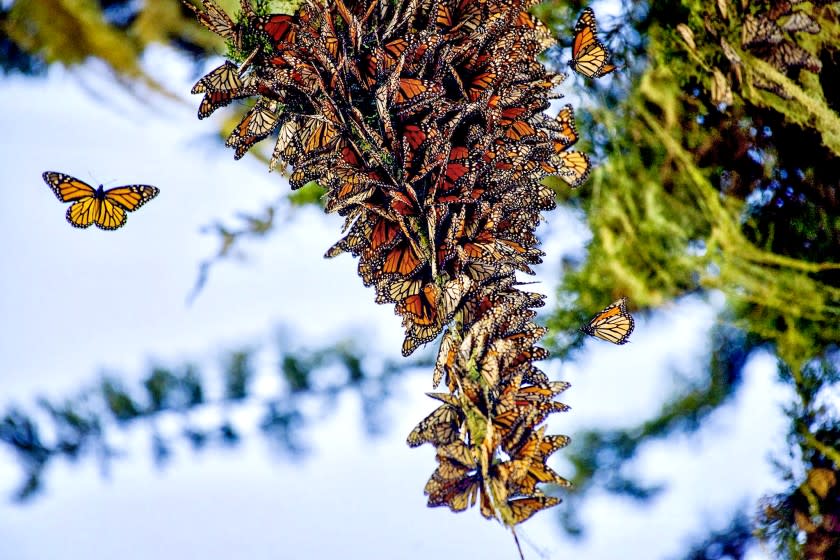Letters to the Editor: You might be planting the wrong milkweed for monarch butterflies

To the editor: As you note in your editorial, planting milkweed is critical to support the return of the monarch butterfly, since milkweed is the only plant that monarch caterpillars eat. Even more important is planting the right type of milkweed. ("California's monarch butterflies could disappear, unless we act now," editorial, March 10)
Many nurseries in Southern California often sell pesticide-laden, non-native tropical milkweed, which doesn't go dormant in winter the way most milkweed does. This evergreen, in turn, supports the spread of protozoa parasites to hungry monarch caterpillars, which leads to crumpled wings, smaller size or overall weakness in adults, making them less likely to reach Mexico to reproduce.
In an article last month, The Times' Jeannette Marantos offered sage advice to support monarchs: Grow organic, native milkweed; ask local garden centers to sell only native milkweed plants or seeds; plant lots of nectar flowers; don't use pesticides; and don't "rescue" monarchs by bringing them indoors since this can impact their sense of direction and, in turn, their ability to migrate.
Adam Wills, North Hills
..
To the editor: Thank you for saying that California has a great responsibility to act to save monarch butterflies. We all need to wake up and realize that the bees and butterflies we are losing are important pollinators.
My home is a monarch butterfly sanctuary. Keeping it this way is a hobby that my five grandchildren enjoy with me. My husband and I are teaching our grandkids to value these unique, lovely insects.
We grow milkweed for monarchs to lay their eggs and for the caterpillars to eat, and we plant preferred pollinating flowers. No pesticides are used in our garden.
We totally agree that it is inexcusable to allow such an iconic species to dwindle before our eyes. Climate change and habitat loss are endangering monarchs, and we need to act to protect and value them.
Pamela Carrie, Laguna Niguel
..
To the editor: We have robots searching Mars for signs of life, and yet the monarch butterfly blinks out of existence before our eyes.
Shame on us.
Amy Wolfberg, Los Angeles
This story originally appeared in Los Angeles Times.

